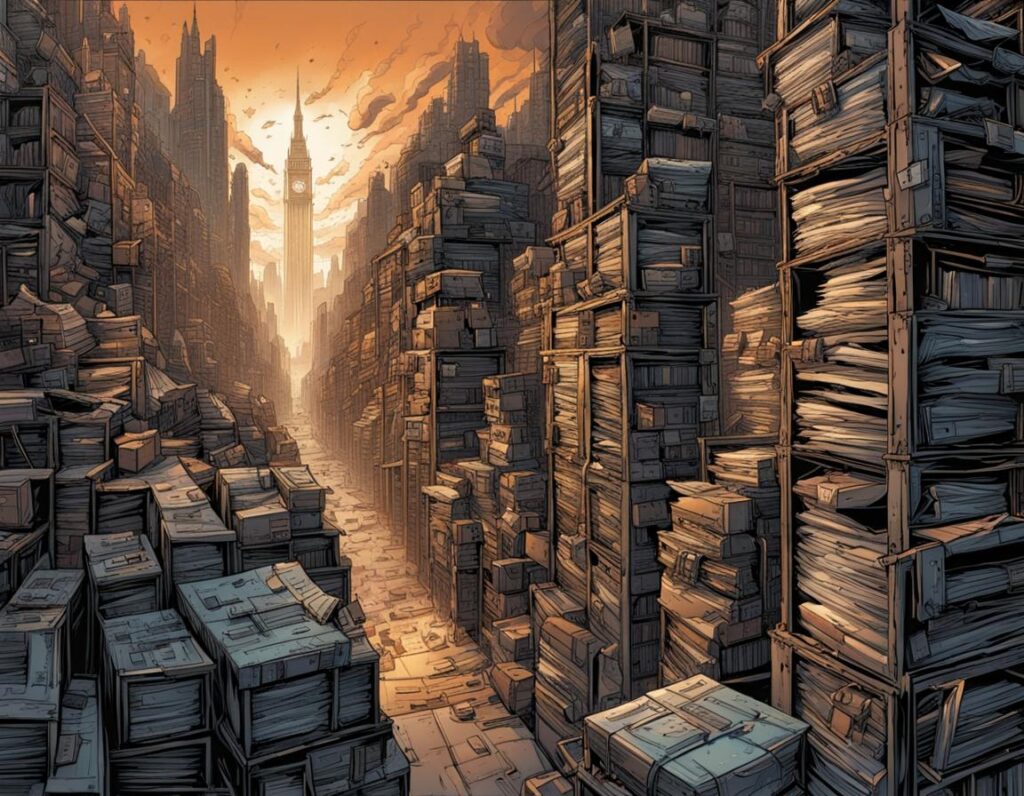March 11, 2024
Strengths and Weaknesses as a Writer: a Pointless Question
I recently had a hilarious (as it turned out) experience in a professional capacity. A Gothic writer wanted to hire a freelancer and I was one of the candidates. One of the interview questions was, What are your strengths and weaknesses as a writer?
On the surface, there doesn’t seem to be anything wrong with this question. Lazy recruiters have been using this for a long time and equally lazy and conformist candidates have been giving nice canned responses.
The thing is, al this falls apart once fiction writing enters the picture.
So this ridiculous experience – I’ll offer you more details in a while – inspired me to write this post, to clarify why What are your strengths and weaknesses as a writer? is a profoundly pointless question. Any writing adviser, guru, coach, or whatnot who tries to sell you a course or method to “fix your writing weaknesses” is just after your money.

“What Are Your Strengths and Weaknesses as a Writer?” – Yawn…
Just for the laughs, here’s what happened with that interview. As I said, one of the questions each candidate needed to answer was about strengths and weaknesses as a writer.
Now, I understand people are eager to quantify everything, but some things are just unquantifiable. Still, I came up with an answer – the hiring writer clearly stated they were after very brief answers, which made it fairly simple for me: I offered a couple of “pluses” (we’ll get to this in a moment) then, as a “minus” (ditto), I mentioned how I wasn’t interested in writing long, elaborate descriptions, and if they wanted someone who would, it would be best to hire someone else.
About an hour later, I got a message. The writer expressed their being impressed by my credentials (well, duh), but they were troubled by my response to the strengths and weaknesses question. Namely, they said I wasn’t honest and asked whether I’d like to give it another try.
A Different Language
I was already put off at that point, and I had decided I wouldn’t accept the job even if they offered it. Still, as a matter of courtesy, I explained I’d be happy to elaborate on that – brief, per their request – response. So I offered a couple of additional paragraphs of explanation, adding more details.
The writer came back again and, patronizingly, said they wanted to hear about my strengths and weaknesses as a writer, not those of other writers. At that point I realized we were speaking a different language, wished them good luck, and withdrew my interest.
I also drew a Punning Walrus to commemorate the exchange:
Strengths and Weaknesses As a Writer: a “not even Wrong” Question
Besides the added pointlessness of the exchange I described above, to talk about strengths and weaknesses as a writer (especially of fiction) makes a dangerous assumption: That we can define them objectively and that they apply universally.
If I mention, for instance, that my strengths are “writing deep, realistic characters and implementing multiple endings” and my weaknesses “avoiding elaborate descriptions and being too elliptical and ambiguous”, what kind of conclusions can you draw?
Because to me and my writing, both these sets are actually strengths. I don’t see short descriptions, ellipsis, and ambiguity as a problem when it comes to my writing. To other writers, other genres, other styles, both these sets are, I’m sure, weaknesses. I know for a fact there are writers who don’t like ambiguity or multiple interpretations, and there are genres where realism is incompatible.
To ask someone – not just a writer – “What are your strengths and weaknesses?” is a not even wrong question. It’s the question asked by someone who doesn’t understand art cannot be quantified.
Well… There Must Be a Way to “Fix” my Weaknesses?
Let’s get this out of the way: No writer is perfect, also because we can’t define perfection in art – come to think of it, art must be imperfect.
Let’s also readily recognize something else: We can get better. But there are several important aspects to acknowledge here:
- Writers are the final authority on their work.
- “Good”/“bad” is a meaningless distinction in art.
- What this reader likes is one thing; what that reader likes is another. What this author considers important is one thing; what that author does is another.
- Realistic characters, symbolism, use of flashbacks is one thing in literary fiction; entirely another in, say, fantasy fiction.
You get the idea. Writing as art is relative.
So when you’re asking “how can I fix my weaknesses?” you’re essentially committing the very same error those writing gurus I mentioned above pray upon: You’re looking for a one-size-fits-all solution, some sort of easy thing to copy/paste and be done with.
Success, whatever way you want to define it (and only you can define it) certainly can’t be found “in 6 easy steps” or whatever it is someone wants to sell you.
I don't show you ads, newsletter pop-ups, or buttons for disgusting social media; everything is offered for free. Wanna help support a human internet?
(If you'd like to see what exactly you're supporting, read my creative manifesto).
